Babanrao Dhakane passed away on October 26, 2023 at the ripe age of 86. In the sixty years of his public life, he held numerous high-ranking positions such as MLA, MP, and minister at both state and central levels. His first claim to fame came at the age of thirty, when being a district council member, he obtained entry in the into the Maharashtra Legislative Assembly audience gallery on July 8, 1968, called out slogans and threw handbills highlighting the plight of people from the Pathardi Tehsil. Consequently, the Legislative Assembly charged him with breach of privilege and sentenced him to a seven-day imprisonment. At that time, there was a three-hour intense discussion in the Assembly, during which 23 MLAs spoke. Members from the Congress, Jan Sangh, and Socialist parties were among those who agreed with the seven-day punishment. On the other hand, members from the Shetkari Kamgar Party and the Communist Party advocated for reducing the punishment to one day. Fifty-six years have passed since that incident, and the discussion, still archived in the Assembly's records, remains exceptionally relevant readable and particularly enlightening even today.
Weekly Sadhana had published the transcript of the stormy debate in Marathi in the issue dated 09 December 2023 to pay homage to him when he passed away last year. To mark the occasion of the first anniversary of his passing, we bring the discussion to a wider audience in English.
The content of the leaflet that Babanrao Dhakane threw into the Assembly gallery on :
Respected Naik Saheb, keep us in your thoughts!
Rulers, do remove the injustice!
Honorable Chief Minister Vasantrao Naik, respected members of the Cabinet, and beloved representatives in the Assembly, a humble request to you all...
It has been twenty years since we attained self-rule (Swaraj), but the people of Pathardi Taluka in Ahmednagar District have not been able to experience the true benefits of it, beyond merely recognizing the word "Swaraj." In reality, hundreds of citizens from this taluka sacrificed their livelihoods, endured imprisonment, beatings, and gunfire during India's struggle for independence. Some even gave their lives.
And after independence, whenever the nation faced adversity, be it the invasions by China and Pakistan, or natural disasters like earthquakes and droughts, the farmers and citizens of this taluka were always at the forefront. This taluka has always contributed its part in such situations.
Neglected Taluka
Pathardi Taluka is a highly hilly, rainfed, and constantly drought-prone region. In the past twenty years and even before that, not a single check dam, road, industrial factory, small business, or electricity project has been initiated here. Unemployment is so rampant that every year, for eight months, around 20,000 farmers migrate to sugar factories and Konkan for labor. Despite numerous demands and requests, the government has not taken any measures for the development of this taluka. The tolerant people, placing their trust in their local representatives and district leaders, remained silent.
Everyone is Corrupt
In the hope of finding a benefactor who would address the development issues of this taluka, the people here elected Congress members, and even Communist members. They honored leaders, adorned them with garlands, took them in processions, and offered them meals. But, following the saying, "When the need is met, the helper is forgotten," every one of them abandoned us. No one seriously addressed the developmental issues of the taluka.
Speaker of the Legislative Assembly, the Representative of the Taluka
During the last elections, Maharashtra’s beloved leaders, Honorable Yashwantrao Chavan and Vasantrao Naik, came to this taluka and stated in a public meeting, "For the bright future of this region, elect Balasaheb Bharde as your MLA and Anantrao Patil as your MP." Trusting their words, the people elected both by a large margin. It has been a year and a half since then. Now, Chavan Saheb has become the Home Minister of India, Naik Saheb has become the Chief Minister of the state, and Bharde Saheb has become the Speaker of the State Legislative Assembly. Anantrao Patil is nowhere to be found, and the people of this taluka are still neglected. The Constitution allows the election of representatives, but unfortunately, it does not allow the withdrawal of representation. However, these leaders should not break their moral obligations.
Patience Has Run Out
The people, who remained patient for 20 years, are now angry and have initiated a collective movement for the people and by the people to draw the government's attention. On June 7th, a strike was held in Pathardi, and a march was taken to the Mamledar’s office, but the government ignored it. Therefore, on June 22nd, another strike and a march of 8,000 people were held, but again it was ignored. Then, on June 29th, women organized a march. Now, the taluka and the Action Committee have planned a series of protests, including marches, fasting, non-payment of taxes, and civil disobedience. Black flags, 2 meters long, have been hoisted since June 7th in the villages. However, the government has not taken notice of this. Instead, efforts are being made to suppress the movement. A lathi-charge was conducted during the June 29th march. The people, who have lived patiently and faithfully, may soon express their anguish in unexpected ways. The government should not further aggravate our pain.
Appeal to the Representatives
Until now, no representative from this taluka has taken up the issue of the taluka’s development. Therefore, I humbly request all the honorable representatives in this Assembly to obtain detailed information about this long-neglected taluka. Just as a neglected animal’s life becomes fulfilled when it finds a compassionate and responsible owner, I urge all of you to collectively become guardians of this neglected and backward taluka. If an official inquiry is conducted, it will be revealed that no significant work has been done here either before or after independence. The only work that has been done is giving assurances, performing groundbreaking ceremonies, preparing plans and estimates, and issuing tenders. Whenever any government plan, including those by the Zilla Parishad, has been implemented across the state and no other area remains undeveloped, only then does the government remember Pathardi Taluka. Whatever tiny inferior scraps remain are thrown to this taluka. From this, one might conclude that this taluka has been reserved by the government as a relic for a museum, to show how backward, poor, and ignorant India was before Swaraj.
In conclusion, I extend my respects to all of you and this Assembly, as the limit of our patience is being crossed. There is a massive movement against injustice in the taluka, but our leaders and rulers are ignoring it. Before our movement escalates further, please address our suffering.
Jai Hind!
How about rooting for a Socialist Societal Organization? Equal Opportunities? Equal Development? Harmonious Community Life? and Resistance to Injustice?
Babanrao Dadaba Dhakane, Pathardi, Ahmednagar District.
8 July 1968
Maharashtra Vidhan Sabha Proceedings, Volume No. 43 (July 9, 1968)
Mr. Vasantrao Naik (Chief Minister): Mr. Speaker, I request that, (yesterday) on July 8, 1968, Mr. Babanrao Dhakane disrespected and dishonored this House by shouting slogans and throwing leaflets. The House has accepted the proposal related to this matter. The conclusions are as follows:
1. The Honorable House holds Mr. Babanrao Dhakane responsible for disrespecting and dishonoring the House.
2. Therefore, it is recommended that Mr. Dhakane be sentenced to seven days of imprisonment.
(Proposal submitted.)
Mr. Krishnarao N. Dhulap (Leader of the Opposition): Mr. Speaker, I move the following amendment to the proposal: Instead of the words “seven days,” the words “one day” be substituted. (I move an amendment that, instead of seven days, the sentence be reduced to one day.)
Mr. Speaker, I have suggested an amendment to the proposal put forth by the esteemed leaders of this House. The nature of this amendment is that, instead of the seven-day punishment given by the special privileges committee, it should be reduced to one day. While supporting this amendment, I would like to present one primary point to this House. There is no reason to disagree that the honor of this esteemed House should be strictly preserved; however, it is necessary to present the background of this incident to the House.
Mr. Speaker, Babanrao Dadaba Dhakane tried to bring the grievances of the people from his region to the notice of the highest platform of this state. (only when it appeared that no action was taken despite voicing them first through “proper channels”) He broke the rules, threw leaflets, and shouted slogans such as “Naik Saheb, give us justice.” The individuals mentioned in the leaflets he threw were referred to respectfully. There was no sense of bitterness or hatred in them. There is no doubt that his actions were contemptuous of this House. But we should consider the background from which this incident arose.
Mr. Speaker, whether satyagraha is good or bad is a matter of debate. (Before Independence,) You may also have participated in satyagraha and broken laws. During that time, those who participated in satyagraha and broke laws, openly declared before the magistrates that they had knowingly broken the law. In the post-independence era, there might be differing opinions on whether or not to adopt satyagraha. However, the incident that occurred yesterday resulted in contempt of this House, and therefore, the individual must be punished. We agree with your view that he should be punished. It has been decided to sentence him to seven days of imprisonment. There is no doubt that you can sentence him to seven years if you wish. However, considering his well-meaning cause, the punishment should be symbolic. Therefore, instead of imprisoning him for seven days, I suggest a one-day sentence. You may be aware that many times, courts have sentenced offenders until the rising of the court.
Honorable Speaker, this assembly of representatives exists to continually address and eradicate the injustices faced by the people. This temple of justice is meant to resolve people’s issues and concerns, and help them materialize their aspirations. We are not here to merely resolve disputes; we are here to think about the overall development of the people.
Honorable Speaker, this delegation represents the entire state, and the unfortunate reality is that the delinquent person belongs to your own constituency of the Pathardi tehsil. You hold the chair of this assembly and hence you might not have been able to focus on your constituency. However, it is the collective responsibility of this house to pay attention to such matters. Common people are now in such a state of mind, that if their tissues remain unresolved, even small matters are being handled in an attention seeking manner. Hence, it was this sense of frustration that led the individual to commit this crime.
Kindly do not misunderstand that I do not wish to uphold the dignity of this assembly. I have repeatedly expressed my views whenever the question of the assembly's dignity has arisen. We always agree that the dignity of the assembly must be upheld. The only point of disagreement is the duration of the sentence. A seven-day punishment has been handed down, but I request this honorable assembly to consider reducing it to one day.
(The amendment motion was presented.)
Mr. S.D. More (Shirur): Honorable Speaker, I wish to express my thoughts on the motion that has come before this assembly. If there is a discussion on the proposal afterward, I will also share my views at that time. Yesterday, when we were seated in the Honorable Speaker's chamber, the concerned individual was given ample opportunity to express regret for what had occurred. I am saddened to say that despite many pleas, he did not utter the word 'regret.' This shows that the individual deliberately intended to insult this honorable assembly.
Honorable Speaker, therefore, I strongly oppose the motion. The dignity of this assembly is the dignity of every member of this assembly. The arena for fighting the injustices and atrocities happening in the state is different. If a fight is to be waged in that arena, we will fight with the people shoulder to shoulder, but under no circumstances should the dignity of this assembly be compromised. With that, I support the original resolution and oppose the motion to reduce the punishment.
Mr. R.K. Mhalgi (Shukrawar Peth, Pune): Honorable Speaker, the incident that occurred in this honorable assembly yesterday has been reported by the Privileges Committee, and the punishment given to the individual is just. From the report, it is clear why the punishment should not be reduced. It states that,
Mr. Dhakane has clarified that he is a journalist by profession and a member of the Ahmednagar Zilla Parishad. Moreover, he is a member of the Standing Committee. From this, it is evident that he is a responsible citizen and serves in a position of responsibility as a public servant in his taluka. The fact that such a responsible individual committed this act makes it even more serious.
After receiving this report, if we were to say that the seven-day punishment given to this individual should be reduced to one day, it would suggest that we have not understood the situation.
Honorable Speaker, I have made inquiries about Dhakane. I learned that he is a member of the Ahmednagar Zilla Parishad, elected on a Congress ticket. A member of Congress and a person of such a high position has committed this crime. If the Privileges Committee has taken due notice of this crime, then there is no reason to show any sympathy toward that individual. Furthermore, when a crime is committed, the intention behind it must also be considered. There is a difference between a crime being committed impulsively and one being premeditated. Even in the courtroom, we sometimes argue that the punishment given under the Indian Penal Code should be reconsidered, understanding the situation. But this individual came here, distributed pamphlets, and threw them down into this assembly from the gallery, thus insulting this assembly. Therefore, I strongly oppose reducing the punishment from seven days to one day.
Democracy has its own standards, and we are all committed to upholding those standards. We must be sincere about the word 'democracy'. Hence, arguing that the punishment given to someone who has insulted the assembly and obstructed its work should be reduced is audacious. The opposition leader should not have shown such audacity. On the contrary, it would have been appropriate if they had stated that the punishment given was just. In any case, I conclude my speech by supporting the proposal before this assembly, opposing the motion, and requesting that it not be accepted.
Mr. D. N. Patil (Alibag): Honorable Speaker, I stand to support the motion presented by the Honorable Leader of the Opposition in this assembly. The Honorable Member Mr. Rambhau Mhalgi, who spoke before me, read out some lines from the report of the Privileges Committee.
Honorable Speaker, I have the same report with me, and it is on that basis that I am supporting this motion. Previously, we did not know who Mr. Dhakane was. Today, we know that he is a member of the Zilla Parishad. According to the Honorable Member Mr. Mhalgi, he is an active member of the Congress. But, Honorable Speaker, we must consider the purpose of this person for coming here and making those statements. We need to look at the background. I am beginning to wonder, if, in trying to uphold the dignity of the assembly, we are not falling prey to false prestige. I believe that, today, in this temple of justice, we should look at this matter with a sense of compassion. Therefore, I support the motion brought by the Leader of the Opposition, Mr. Krishnarao Dhulap.
Honorable Speaker, in the testimony Mr. Dhakane gave before the Privileges Committee, he clearly stated that, ‘At that moment, I was aware that this act would harm the dignity of this honorable assembly; however, I committed this act to draw attention to the issues in my taluka.’
Honorable Speaker, unfortunately, a debate has arisen over how much a member can work in their constituency once they are elected as Speaker. As a result, people are now looking at us from that perspective. Unfortunately, Speakers are not paying attention to the work in their constituencies because there is no one to question them. Therefore, Honorable Speaker, Mr. Dhakane has stated that the suffering of the area from which he was elected should be brought to your and our attention; it was with this sole intention that he committed this act. Yesterday, something significant happened. A man came to the assembly and, while distributing pamphlets, referred to the Chief Minister Vasantrao Naik Saheb as 'Naik Saheb,' showing that he maintained boundaries, did not overstep them, and did not use abusive language. His intention was not to disrespect this assembly. But Honorable Member Mr. Mhalgi says that he did this deliberately. However, in my opinion, he did not do it deliberately; he did it because he had no other option left, than to boldly displaying the sufferings of his region for all to see.
Mr. B. B. Khanjire (Ichalkaranji): Mr. Speaker, Point of Order
(Mr. D. N. Patil is asked by the Speaker to sit down, and he complies.)
Mr. Speaker, the honorable member (D. N. Patil) is standing here in support of the amendment motion, however, he has taken a stand that Mr. Dhakane is "innocent." Instead of doing that, he should limit his comments to either support or opposition, as he cannot declare Mr. Dhakane as innocent.
Mr. D. N. Patil: I did not say anything about him being guilty or innocent. However, he came here to present the unfair treatment faced by his constituency to this House and clearly explained his position on the matter. Therefore, considering those issues, an amendment motion has been presented to reduce his seven-day punishment to just one day. Hence, Mr. Speaker, I believe his punishment should be reduced.
Mr. Speaker, even more serious incidents have occurred here. With your permission, I will mention them. In 1965-66, when a gentleman threw shoes at a minister, he was only given a one-day punishment. Mr. Speaker, since Mr. Dhakane has pleaded for mercy, I believe this temple of justice should show him some leniency, and his punishment should be reduced from seven days to just one.
Mr. A. N. Namjoshi (Girgaon): Mr. Speaker, yesterday, the Privileges Committee had a meeting, where we summoned Mr. Dhakane. We sympathetically asked him, "When you first took a pass for the spectators' gallery, did you inform the member whose signature you took that you would behave in this manner?" He responded, "No." We asked, "Do you feel that you have been unfair to the " To which he replied, "I do." Then we asked, "You came here with printed pamphlets, does that mean the whole event was pre-planned?" He answered, "Yes, I had planned everything in advance." We then asked him, "You are a member of the District Council, a member of the Standing Committee of the District Council, a journalist, and an activist. You understand the principles and responsibilities of democratic institutions, so why did you act inappropriately, like the students from Nagpur did in the past?" It became evident from his statements that he was fully aware of all these things. Therefore, Mr. Speaker, the reference to the Nagpur students not being punished cannot be used here. Later, when asked if he felt what he did was wrong, he said, "I do not regret what I did." The report of the Privileges Committee mentions that "He, therefore, did not feel sorry for the action, but felt satisfied for having done his duty." So, Mr. Speaker, he has admitted to what happened. He acted knowingly, and after getting permission to sit in the gallery, he used that permission for such a purpose. Hence, considering all these factors, the Committee decided to give him a seven-day punishment. If we reduce it, it will set a precedent, and every dissatisfied person will not hesitate to use this new tactic. This will create a new "technique" in parliamentary work. Therefore, a seven-day punishment for dishonoring the House is the minimum, and I do not think it should be reduced. Hence, I oppose this amendment motion.
Mr. B. K. Boman-Behram (Colaba): Honorable Speaker, I stand to speak in favor of the proposal. I am surprised that any member of this prestigious House, who understands its dignity or the fundamental principles of democracy, would oppose this proposal or suggest any amendment to it. This is an insult to the House, just as it would be an insult to a court when it happens directly in front of the court. In fact, the Privileges Committee has treated this matter very leniently or with great generosity. If an insult occurs in a court, the court can punish the person without any trial. Similarly, we members can also punish the individual without a trial. When such an insult occurs in court, the person is not even given a chance to present evidence. First, the person is asked to offer an unconditional apology, and if they fail to do so, they are sent to jail. Therefore, I am convinced that, in such cases, the punishment should not be less than one month. But here, we have been very lenient regarding the concerned person... (Laughter from the opposition).
My honorable opposition friends may laugh, but the question here concerns the fundamental values of democracy. Sir, you have heard their arguments in full. During the committee hearing, the gentleman in question admitted that he was aware that his actions tarnished the dignity of this House. Not only that, but according to him, he took this action to bring the issues of his constituency to the attention of the members of this House. In other words, this gentleman has admitted to unconstitutional conduct in order to highlight the problems of his constituency before the House. Now, is this House going to validate the unconstitutional act committed by this individual? I want to ask the opposition whether or not they consider this action unconstitutional. Are we going to respect the Constitution and democratic procedures or not? Hence, I support the proposal and assert that the punishment is very lenient. In fact, the Privilege Committee has been extremely mild in delivering such lenient punishment after hearing the gentleman's explanation.
(Translated by Rucha Mulay)
kartavyasadhana@gmail.com
Read the original Article in Marathi published in the Weekly Sadhana issue dated 09 December 2023 here:
महाराष्ट्र विधानसभेत 55 वर्षांपूर्वी झालेली वादळी चर्चा
Tags: babanrabv dhakne pathardi maharashtra assemby vidhansabha constituency debate Load More Tags

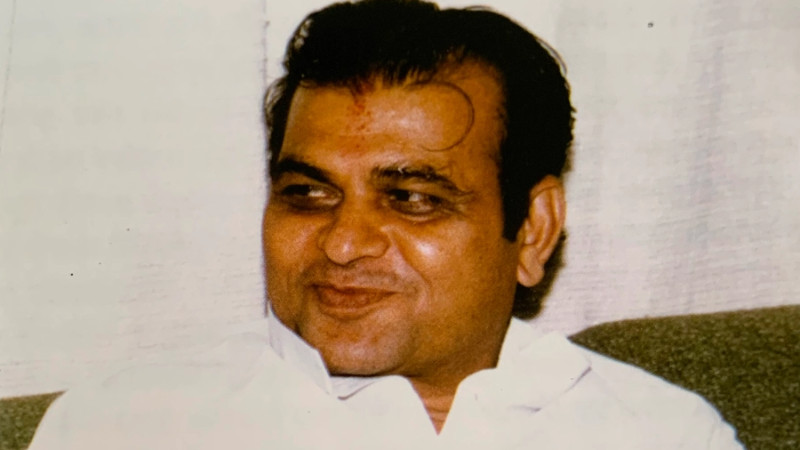
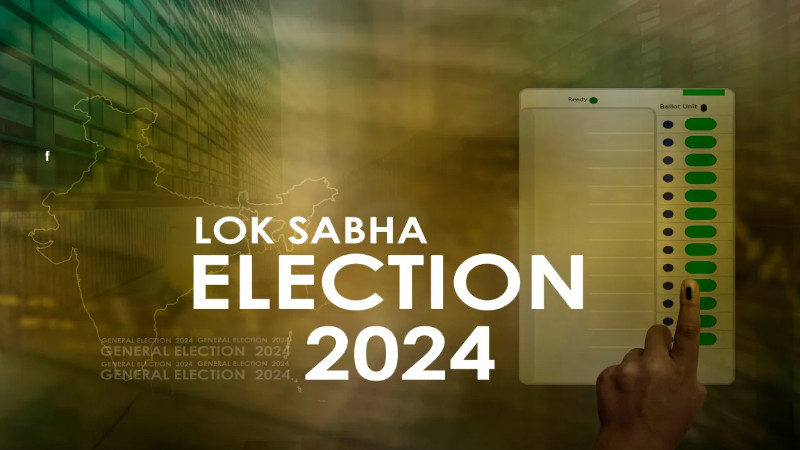
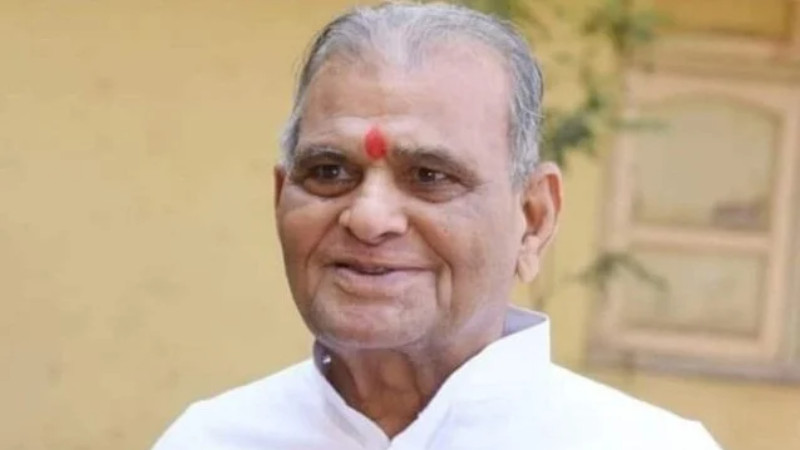
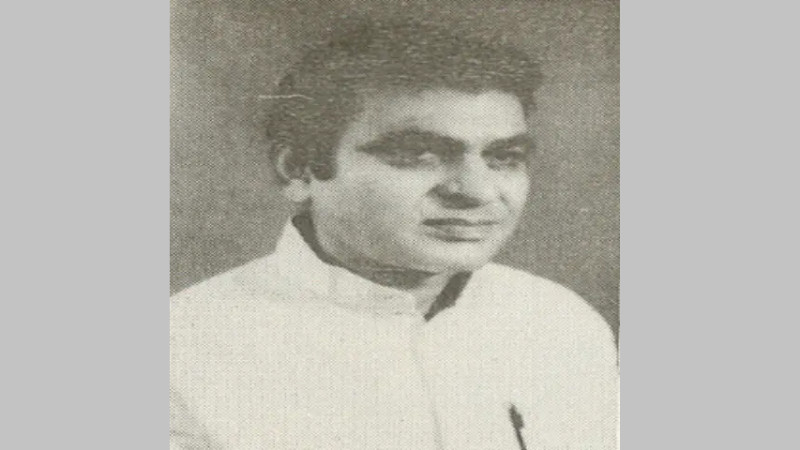
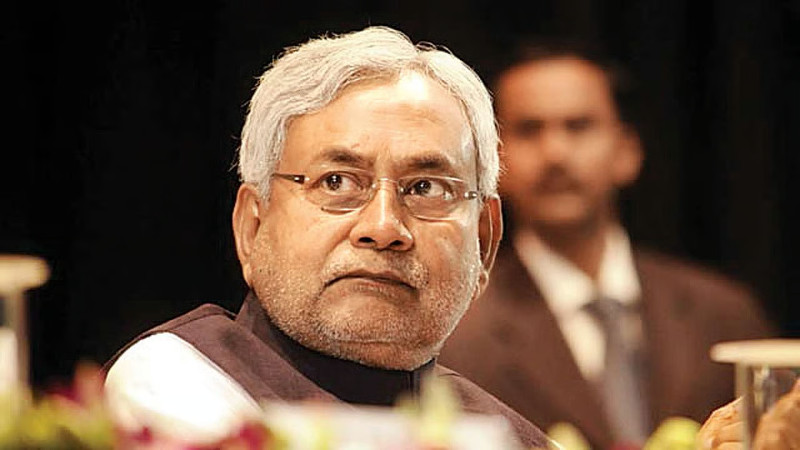


























Add Comment